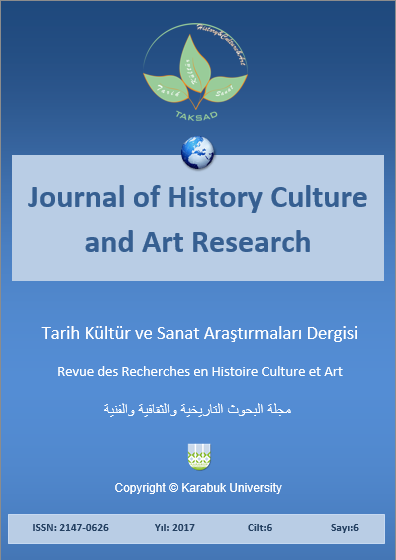Strategy of Media Education: Philosophical and Pedagogical Aspects
DOI:
https://doi.org/10.7596/taksad.v6i6.1331Keywords:
Community of researchers, Philosophizing, Socratic dialogue, Problem-solving activity approach, Media education.Abstract
Modern requirements for educational activities have a binary nature. Thus, on the one hand, educational practice established in the form of a social institution is one of the most conservative areas of social space. On the other hand, comfortable adaptation of a person to the processes occurring in the modern world is impossible without taking into account the phenomena of digital nature. The article provides a philosophical and pedagogical strategy aimed at the development of critical and creative thinking skills and competent reasoning, which can act as a basis for media education. The paper shows that the community of researchers is an interactive form of lesson organization, which makes it possible to develop rationality and ethical-and-democratic behaviour and, thus, to promote information and media literacy among students. The article also presents theoretical justification of the strategy, as well as techniques and materials for its empirical assessment. These can help arrange a lesson according to the principle of research community, which will contribute to the development of both cognitive and ethical-and-social skills in students.
References
Bolz, N. (2007). Das ABC der Medien. Muenchen.
Buber, M. (1971). I and Thou. New York: Scribner’s.
Lipman, M. (1988). Critical thinking: What can it be? Institute of Critical Thinking. Resource Publication. Series 1, 1(1).
Lipman, M. (2003). Thinking in education. (2nd. ed.). New York: Cambridge University Press.
Manovich, L. (2009). How to Follow Global Digital Cultures, or Cultural Analytics for Beginners. F. Stalder and K.Becker (Eds.), In Deep Search: The Politics of Search beyond Google. New Jersey: Transaction Pub.
Marvin, C. (1988). When Old Technologies Were New: Thinking About Electric Communication in the Late Nineteenth Century.
McLuhan, M. (1964) Understanding Media: The Extensions of Man. Cambridge. MA: MIT Press.
Mikhailovna, N. E. & Dmitrievich, S. M. (2014). Glamorous education: Main features and manifestations. International Education Studies, 7(11), 97-102.
Rogers, C. R. (1986). A client-centered / person-centered approach to therapy. In L.L.Kutash & A.Wolf (Eds.), Psychotherapist's casebook. Theory and technique in the practice of modern times. (pp. 197-208). San Francisco: Jossey Bass.
Tyner, K. (1991). The Media Education Elephant. Strategies Quarterly Summer. URL: http://www.medialit.org/reading-room/media-education-elephant
Downloads
Published
How to Cite
Issue
Section
License
All papers licensed under Creative Commons 4.0 CC-BY.- Share — copy and redistribute the material in any medium or format
- Adapt — remix, transform, and build upon the material for any purpose, even commercially.
Under the following terms:
Attribution — You must give appropriate credit, provide a link to the license, and indicate if changes were made. You may do so in any reasonable manner, but not in any way that suggests the licensor endorses you or your use.
- No additional restrictions — You may not apply legal terms or technological measures that legally restrict others from doing anything the license permits.







